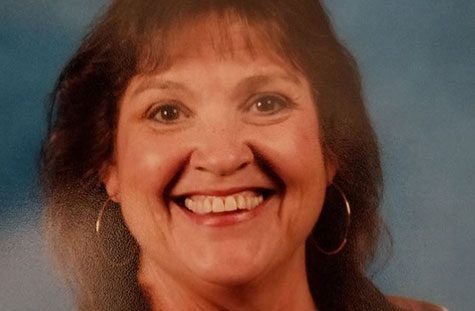Bridgette
Barnsdall, OK
I started sneaking Kent cigarettes from my parents’ bedside table when I was 12 years old. My best friend and I would hide behind the garage and smoke. It made us dizzy and sick, so it is a wonder why we kept doing it. I guess we thought it was cool and made us seem grown up. Cigarette laws were very lax in 1975. We had a “Smoke Hole” at my high school. We smoked in the bathrooms and the school bus went down the road with smoke bellowing out the windows. Over the years, smoking was everywhere, and it became part of my everything. I smoked standing in the grocery line. I smoked on the airplane. I smoked in the hospital after having my babies. I smoked at my desk at work, and when I became a teacher, I smoked in the teacher’s lounge! WOW! That was another time. People smoked everywhere, and “No Smoking” sections were rare.
I cringe when I think of how we all must have smelled. My poor children lived in that secondhand smoke, and we were oblivious to the dangers of it. My heart breaks to think of the times my son would ask me to put out my cigarette because it was hurting his eyes, and I had to take a couple more puffs before putting it out. I put my children in harm’s way, and now both of them are addicted to cigarettes today. They try to quit, but always go back to it. I blame myself for this.
When my granddaughter was born, I became the “Safe and Drugfree School Coordinator” for my school district. The irony was not lost on me. I went to a conference where the son of tobacco baron Philip Morris was the keynote speaker. He talked about the methods tobacco sellers used to get me hooked. He shared insider information and talked about the power of denial. For some reason, this time it really stuck with me. I went home and told my husband about it and we decided to start quitting. We also wanted the tobacco use to stop in our family, and we used the birth of our precious granddaughter as a cornerstone.
Quitting was an extremely difficult and painful process. I used the prescription drug, Wellbutrin. My hubby used Nicorette gum. At this time, we had smoked for over 25 years each. It took about two years to stop digging in my purse for a cigarette that wasn’t there. Even now, after 20 years of being tobacco and nicotine free, in stressful times I find myself searching drawers. When I realize I am looking for a cigarette I am reminded of the powerful addictive qualities and denial associated with this dangerous and damaging drug.
I had my first cigarette at 12 years of age, and I quit at 38 years of age. Today I am 57 and have been smokefree for 19 years. I am happy to report neither one of my grandchildren smoke. They say they hated growing up in a smoking home, and because of all the negativity associated with smoking they don’t feel social pressure to start. On the other hand, my adult children still struggle to pay for the cigarettes that are all so consuming to them, and my doctor is monitoring me for COPD.
Ultimately, I am terribly grateful to have this addiction behind me. I teach in a high school where I openly share my struggle with cigarettes and encourage kiddos to leave them alone. I am proud to be a nonsmoker. Yet, I don’t judge those who suffer with this addition. There is help and hope for a smokefree future if we just start stopping.








